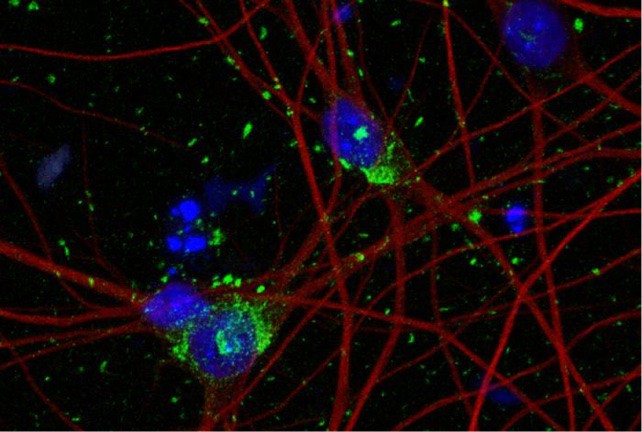Preclinical model offers new insights into Parkinson’s disease process
A new preclinical model offers a unique platform for studying the Parkinson’s disease process and suggests a relatively easy method for detecting the disease in people. …

A new preclinical model offers a unique platform for studying the Parkinson’s disease process and suggests a relatively easy method for detecting the disease in people. …

An artificial intelligence-powered liquid biopsy for detecting tumor DNA in blood has shown unprecedented sensitivity in predicting cancer recurrence. …

Scientists discovered a new connection between two important pathways that regulate the immune system in mammals, impacting our understanding of chronic inflammation and inflammatory bowel diseases (IBD). …

New research has shown that most colorectal cancers begin with the loss of intestinal stem cells, even before cancer-causing genetic alterations appear. …

A nasal spray containing a calcium channel blocker successfully and safely treats recurrent episodes of a condition that causes rapid abnormal heart rhythms. …

Scientists have developed a human neuron model that robustly simulates the spread of tau protein aggregates in the brain—a process that drives cognitive decline in Alzheimer’s disease and frontotemporal dementia. …

Unique bacteria colonize the gut shortly after birth and make the neurotransmitter serotonin to educate gut immune cells, which prevents allergic reactions to food and the gut bacteria themselves during early development. …

A new study identified a set of 140 genes that may help predict enhanced disease-free survival in patients with non-small cell lung cancer (NSCLC) treated with a combination of immunotherapy and low-dose radiation. …

The SARS-CoV-2 virus that causes COVID-19 can infect dopamine neurons in the brain and trigger senescence—when a cell loses the ability to grow and divide. …

A drug screening system that models cancers using lab-grown tissues called organoids has helped uncover a promising target for future pancreatic cancer treatments. …
End of content
End of content